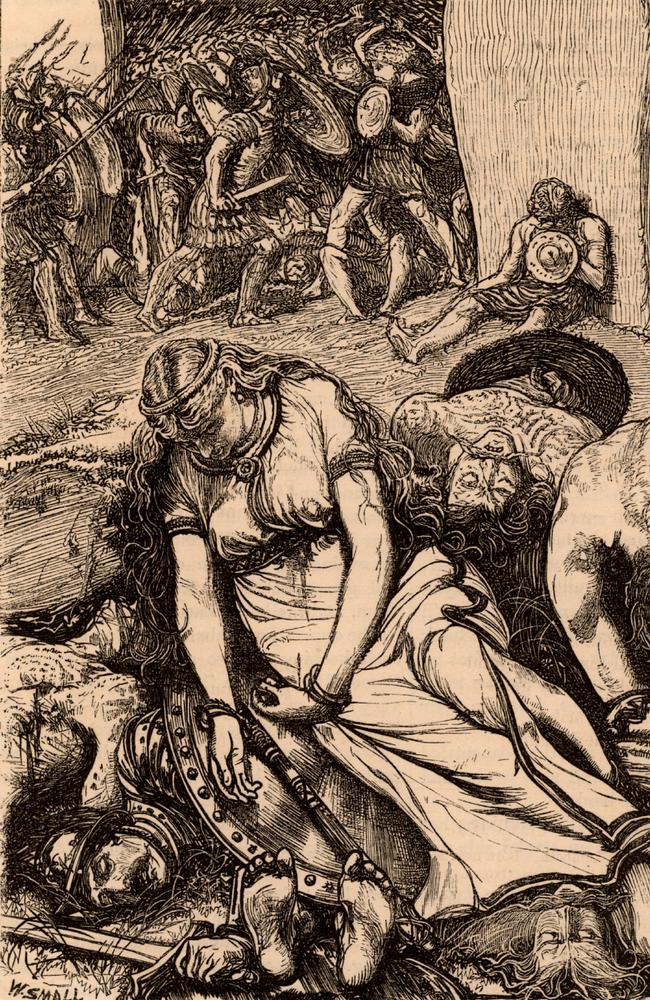Gold and silver hoard reveals the terror of Queen Boadicea’s assault on Roman city of Colchester
ALMOST two thousand years ago British warrior-queen Boadicea stormed a Roman stronghold. Today, the tale of one of her victims — a rich noble woman — has been unearthed.
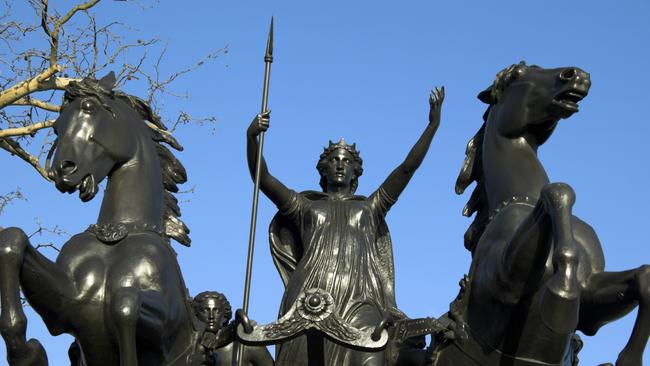
ONE thousand nine hundred years ago, British warrior-queen Boadicea stormed a Roman stronghold.
Today, the tale of the last moments of one of her victims — a rich noble woman — has been unearthed.
Boadicea led the assault on the Roman capital of Britain in about AD60. Her tribal followers — enraged by the humiliating beating of their queen and the rape of her daughters — vented their full fury on the occupants of the newly founded frontier city of Colchester.
The price they extracted from their Roman overlords was brutal.
As the savage tribesmen and women surged over the walls, one wealthy Roman woman hid her personal collection of jewellery. She hoped it would stay safe while she fled to the town’s temple for refuge.
She never returned.
Now, her private collection of gold and silver has been found under the carpark of a modern department store which is undergoing renovation. It was tightly bundled among the well preserved remains of what appears to have been a food storage shelf.
Dates, figs, wheat, peas and grain: All were charred in the fire which destroyed the city.
Perhaps she had stashed her bling in the pantry.
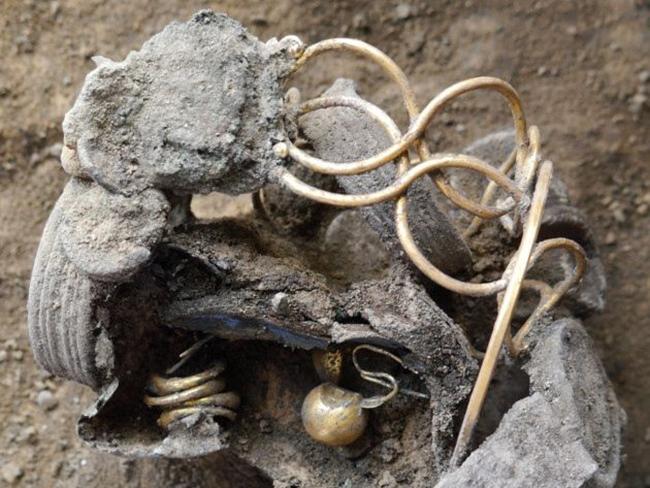
Among the objects found are three gold armlets, a silver chain necklace, two silver bracelets, a silver armlet, four finger rings, two pairs of gold earrings and a bag of coins.
Boadicea torched the town as her warriors besieged the remaining troops and townspeople in the Temple of Claudius.
Its defences soon crumbled. All within were slaughtered. The remains of one body were also found in the ruined house: A skull and shin bone, both heavily marked by a sword. Defender or attacker, the identity remains unknown.
It is almost certain the hoard’s owner was among the dead. She never returned to reclaim her prized possession.
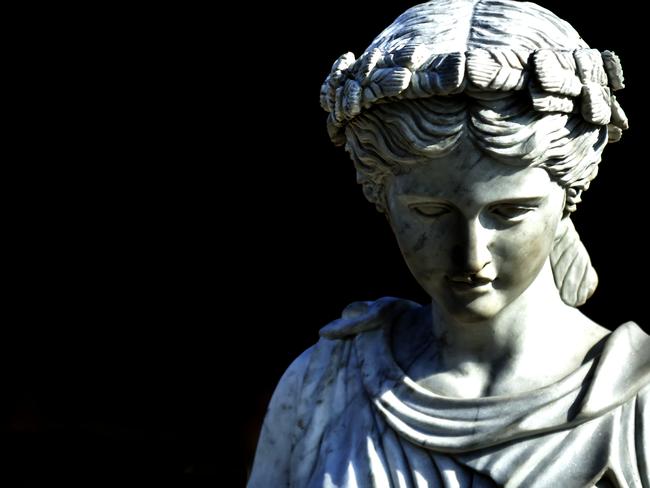
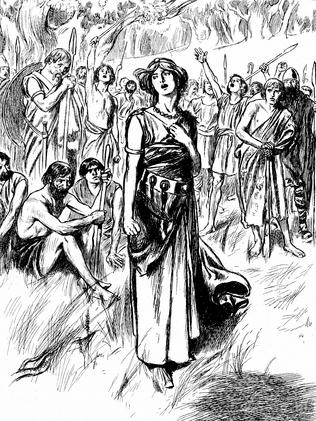
“Imagine their panic and desperation when they learnt of the massacre of a large part of the Ninth Legion on its way to relieve them, and after a two-day siege they were overrun,” Dr Philip Crummy, director of Colchester’s Archaeological Trust, told local media.
“They would have tried desperately to bury and hide valuables like jewellery for safekeeping.”
But the fate of the captured Roman women was recorded by the historians of the time as being particularly fearful.
“We know that the noblest of Colchester’s Roman women were taken to sacred groves, where they were killed in a horrific way,” Dr Crummy said, “and the quality of the jewellery we have found suggests that the owner would have been in this category.”
The scars of Boadicea’s rebellion are still widely evident. A thick red and black layer of debris sits under much of the modern city’s centre.
Boadicea did not start out a warrior. She was married to Prasutagus, the ruler of the Iceni tribe. When the Roman legions conquered Britain in AD43, most of the existing tribal leaders were allowed to keep their titles to smooth over the transition to empire.
But when Prasutagus later died, the Romans seized control of his lands.
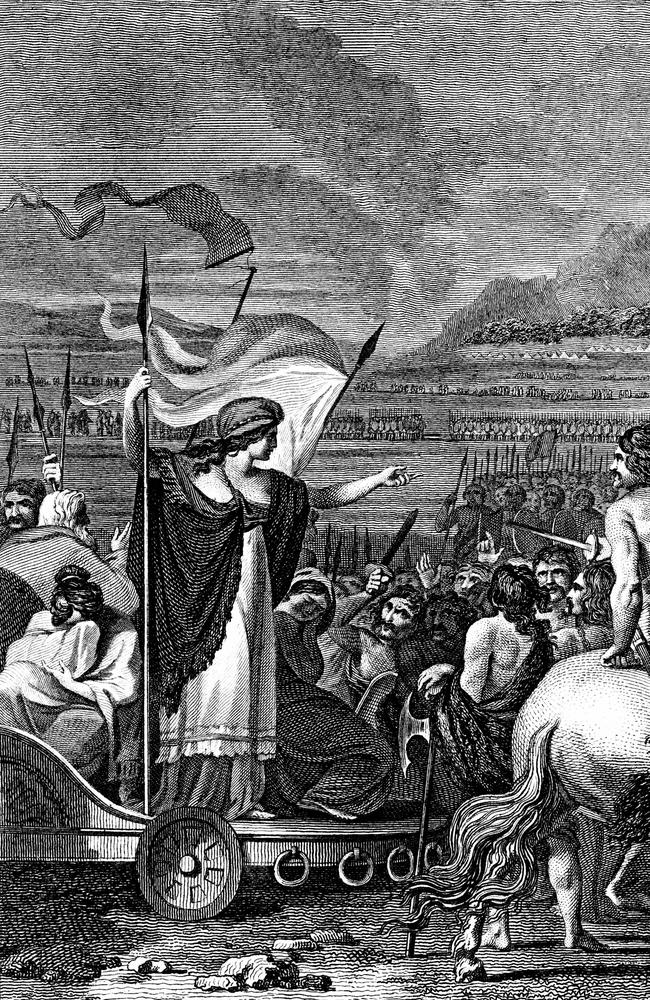
The Iceni resisted, and legend has it that Boadicea was stripped and flogged and her two daughters raped.
The Iceni were incensed. So were many other tribes of Britons, restless under the rule of their new masters.
Boadicea tapped this surge of public unrest, leading her people to crush the Roman Ninth Legion which was tasked with maintaining order in this far-flung outpost of the empire.
Colchester was just one Roman outpost to fall. London and Verulamium (St Albans) would be burned before Boadicea’s army was decimated by a hastily assembled Roman army.
The site of this battle is uncertain. As is the fate of Boadicea herself. But it is believed she poisoned herself to avoid capture.
